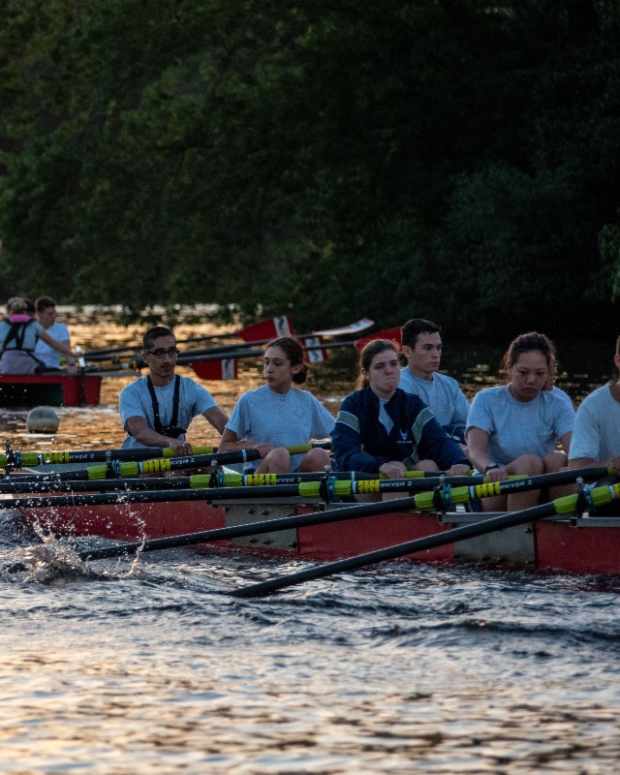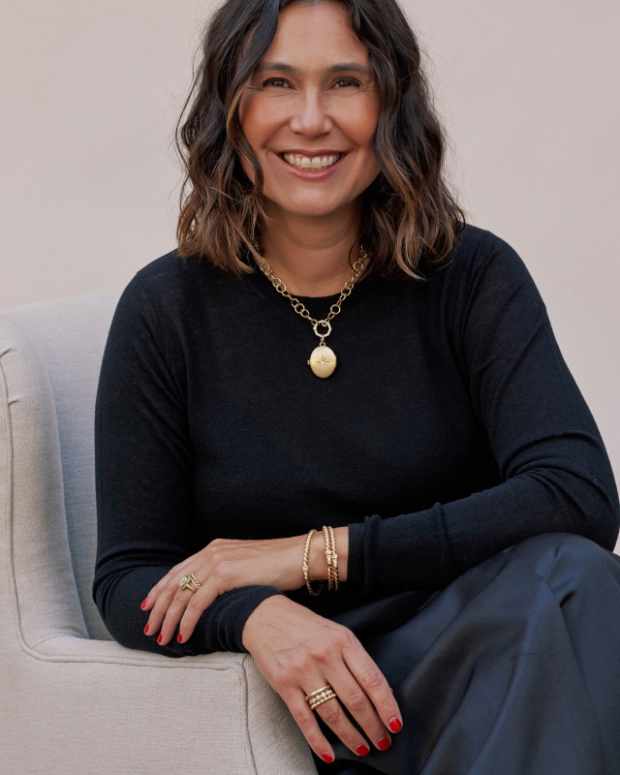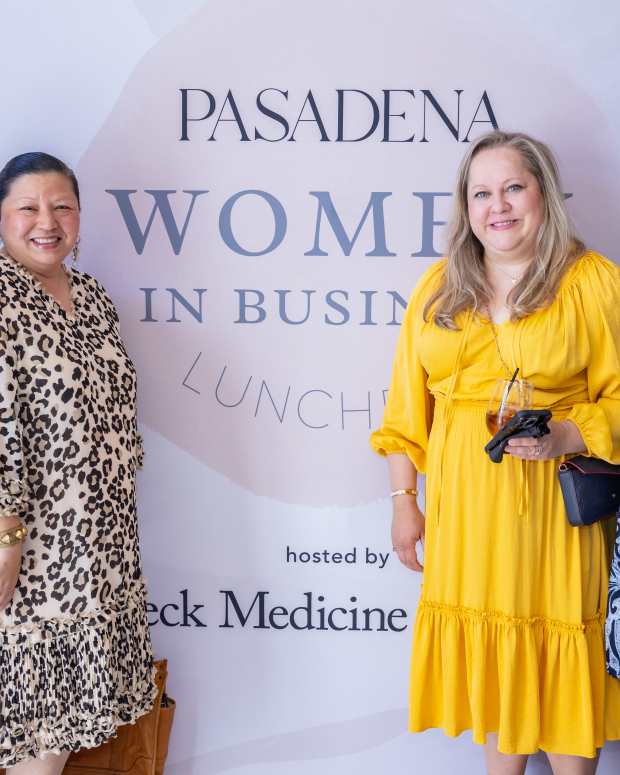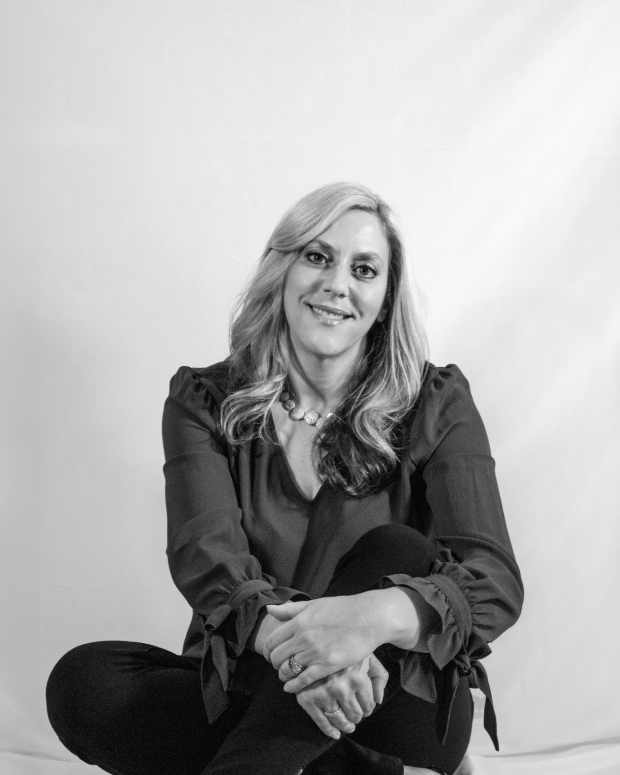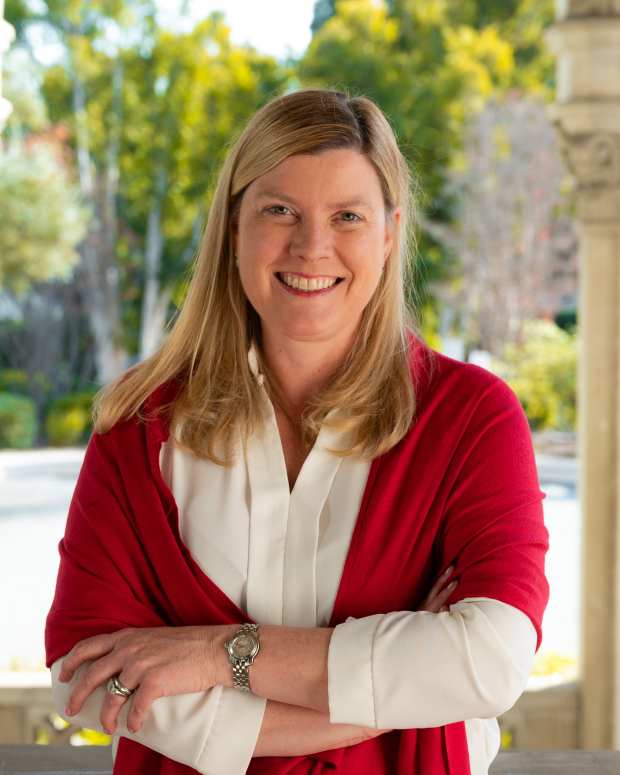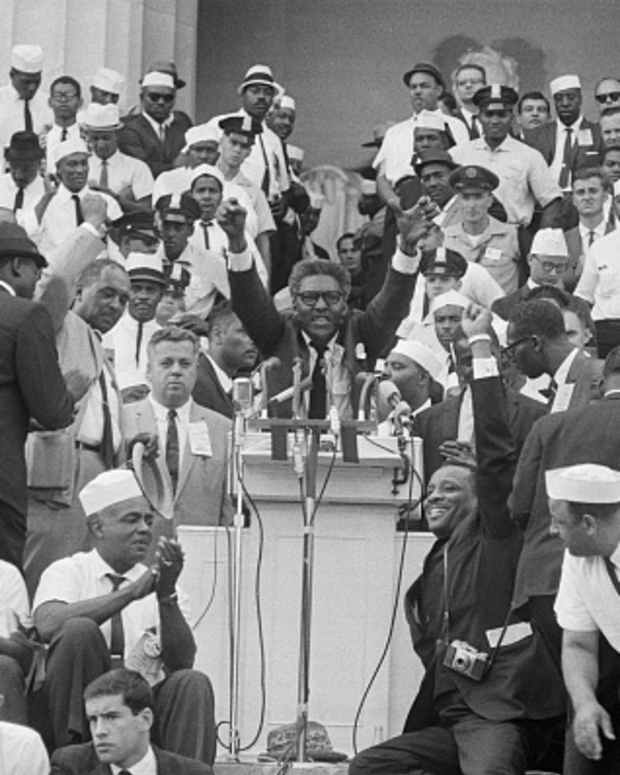How Pasadena Resident and Wonder Woman Movie Producer Deborah Snyder Hopes To Make a Change
As a female executive in Hollywood making box office blockbusters, movie producer Deborah Snyder remains a rarity. As someone making hiring decisions, she’s working to change that.
Story By Lian Dolan Photos by Brooke Mason
The new Wonder Woman film, set to open in early June 2017, is an origin story of how Diana, Princess of the Amazons, becomes Wonder Woman, an unconquerable warrior fighting alongside man in a war to end all wars. In the film’s trailer, we get swords, sandals, shields, the Lasso of Truth, that famous red breastplate/bustier and, of course, those awesome bullet-deflecting bracelets. The film is directed by Patty Jenkins from a screenplay by Allen Heinberg and story by Allen Heinberg and Zack Snyder, and stars Gal Gadot and Chris Pine. Through her 75-year history, the female superhero has been a soldier, a suffragette, a symbol of women’s empowerment and even an Honorary UN Ambassador. (Truly. A short--lived, controversial appointment.) But, the movie represents Wonder Woman’s first foray onto the big screen. It also represents a proud moment for the film’s producer Deborah Snyder, a Pasadena resident and Hollywood producer with her own origin story to tell.
Deborah Snyder’s origin story begins with a failed typing test, not bracelets. Snyder is the co-founder of Cruel and Unusual Films and the Executive Producer or Producer of a slate of blockbuster movies, including 300,Watchmen, Suicide Squad, Man of Steel and Batman vs Superman: Dawn of Justice. Her filmic To Do List includes Justice League,Aquaman and The Batman and several other non-superhero projects. Even now, in her high-profile position, Snyder credits the start of her career with talking her way into a job despite a poor performance on a mandatory typing test. On an actual typewriter.
Snyder, fresh out of Ithaca College in New York, was focused on a career in advertising after “falling in love” with behind-the-scenes work during her undergraduate days. She made her way to New York City with a solid internship under her belt and big dreams. Bubbles burst as the only job she could land was as a receptionist at Backer Spielvogel Bates—an ad agency, yes, but not exactly the hands-on position she was hoping for. When a production assistant gig opened up at the agency, Snyder applied, only to find that a typing test stood in the way of her career goals. Despite cramming with her Selectric on a family vacation, she failed the test. But while the human resources person stepped out of the room for a meeting, Snyder had the opportunity to schmooze with the head of production and talked her way into a production assistant slot. Snyder laughs as she recalls in the interview and her confession about the failed test, “He told me that he didn’t think I’d be doing a lot of typing for long.”
That prediction turned out to be true. Snyder worked her way up the advertising ladder, from production assistant to assistant producer to producer. Snyder acknowledges that there is no linear path from Girl from New Jersey to Big Time Hollywood Producer. “Hollywood seemed so far away and so out of reach.” But she points to “working hard, doing well and seizing opportunities that come along” as a career strategy that worked for her. She got her first real producer credit when a colleague couldn’t make a shoot at the last minute and she stepped up to produce the spot. After that, she was Deborah the Producer.
So how did she make the leap from Madison Avenue to Hollywood Boulevard? Enter true love. In 2002, now a Vice President and Executive Producer at BBDO New York, she hired director Zack Snyder, well-known for his commercial work but not yet a feature film director, to shoot a Soft n’ Dry ad. During the three-week job in New Zealand, the two grew closer and soon she made the move West. Zack Snyder went to Art Center College of Design in Pasadena, loved the city and stayed. The two married in 2004. Deborah was happy to relocate. “I love Pasadena. It’s beautiful. It’s my oasis.” Her post-honeymoon career plans were just to keep doing what she had been doing: producing TV commercials.
But her husband, after a successful feature debut with remake of Dawn of the Dead, was trying to sell 300 around town with no luck. “None of the studios understood it. None of them want to make it,” Snyder recalls, describing the highly stylistic film about the Battle of Thermopylea based on the graphic novel by Frank Miller and Lynn Varley. She suggested to Zack that they do a pitch package, a selling technique straight out of the advertising world used to win new business. The couple created artwork, statues, even a commercial for the film to show Warner Brothers why it was different. After the presentation, the studios could “see” the movie. Warner Brothers bought the project and the package of Zack Snyder, Director and Deborah Snyder, Producer. “It wasn’t an intentional choice for me. But it all fell into place.”
300, shot for about 60 million dollars, went on to gross over 450 million dollars and establish the feature film bona fides of the couple. But even before 300 opened, the leadership at Warner Brothers offered the duo a deal on the lot and Cruel and Unusual Films was born. There are a number of Hollywood couples that work together and Deborah and Zack Snyder have made a successful team on set and off. “I don’t think Zack and I intended on working together or starting a company. But the way we work together is organic. It became a fluid partnership that really works.” Snyder say. For her, it’s all about trust. “Hollywood can be really cut throat. But with us, there’s no hidden agenda.”
Snyder explains that their roles at work are very different at work and they have a grounded life at home in Pasadena, with all the parenting duties that come with raising seven children, ranging in age from four years old to young adult. “But do we talk about projects we’d like to work on together at dinner on Saturday night? Yes.”
Producing for Snyder means being the studio liaison, managing the schedules and the budget, and supporting the creative team’s vision while offering her own creative take through decisions on hiring, marketing, anything that needs her attention. “One of the things I love about this business is that every decision is a creative decision,” she says. Her daily calendar can take her from a current release to working on a project slated far in the future. Right now, Snyder is finishing up the 3D version of Wonder Woman and nailing down the final marketing pieces for that film while managing the early stages of post-production on Justice League, from special effects to music. Post-production is her favorite part of the process, she says. “Shooting is nerve-wracking. But putting all the pieces together is when the magic happens.” Hearing the enthusiasm in her voice for what some might think of as the least glamorous part of the job- long hours in dark rooms doing tedious repetitive work—it’s easy to imagine her as an undergraduate ‘falling in love’ with the behind-the-scenes aspects of production.
In a business famous for big egos, big personalities and big financial consequences, how does Snyder handle the infamous “creative differences?” Snyder is philosophic, answering with the voice of two decades of experience dealing with issues on set or behind-the-scenes, “You have a common goal but there can be a difference of opinion. It’s a creative business so there is no right or wrong answer. It’s important to take a deep breath, listen and try to hear their point of view. It’s not about winning every battle, it’s about winning the war. It’s about choosing those times when you assert your opinion.”
Snyder cites her years in advertising as being a great training ground for the intense, collaborative nature of the feature film experience. “Advertising is fast paced and work gets done on shorter time frames, so you deal with different people and different personalities every few weeks. You’re exposed to a new team of people over and over again. Learning to change and adapt and interact with all kinds of people has really helped me in filmmaking and in my business life.”
Snyder said the leap from the managing budget of a commercial shoot in the millions of dollars to a feature film budget in the hundreds of millions dollars was less of an adjustment than some might think. “In advertising, the producer is in charge of everything, all by themselves. A lot of times, I felt like it was all riding on me. In film, yes, it’s a bigger budget but there are production people there to help you.” That may sound like a modest assessment of her role in films that have grossed over 2 billion dollars, but Snyder’s conversation is saturated words like “team work,” “trust,” and “collaboration.” It’s clear that she sees her role as being a not only a leader, but a team player.
Hiring is definitely an area that Deborah Snyder wants to be a leader, particularly as it relates to getting more women on sets and in roles behind the scenes. “In order to get more women in the industry, seeing is believing.” Snyder believes that as a female producer in her position, now is the time to address the gender equity in Hollywood issue. “A lot of times, I look around and I’m the only woman at the table,” she notes, acknowledging that while it’s important to create more female characters and embrace women’s stories from a content perspective, all hires should be done in a conscious manner to encourage females to enter the industry. “For me, it’s who’s behind the camera? Why aren’t there more female DPs? Why aren’t there more female technical people?”
Snyder has mentored girls on set to expose them to all aspects of filmmaking from the camera department to special effects and looked to find women to fill traditional male jobs like assistant director. “We need to make conscious decisions. Hopefully, if we make these conscious decisions about hiring women more and more, then they will become unconscious. But we have start somewhere.”
For Deborah Snyder, it turns out that “somewhere” is the all-female island paradise of Themyscira, the mythical home of Wonder Woman. Directing the new film is Patty Jenkins, whose previous credits include Monster, which garnered an Academy Award for Charlize Theron, and numerous episodic TV shows from “The Killing” to “Entourage.” Jenkins had been pitching Wonder Woman to studios for seven years before meeting with Snyder about the project. Her take on Wonder Woman hit all the check marks that Snyder says are necessary for compelling storytelling: original voice; specific point of view; and, most importantly, passion. “You have to connect with whatever you’re working with. You live and breathe it. You have to love it.”
Snyder recalls the decision-making process, “For us, for the studio, but it was really most important for me, we had to hire a female director to lead the charge. Wonder Woman is a symbol to women’s place in society. As society evolved, her character evolved in the comic. I felt like we needed to women’s voice to bring her to the screen.” By directing Wonder Woman, Jenkins joins a very select club of female directors, less than a handful of women, who have helmed a live-action film with a budget of $100 million dollars. Jenkins cites “Superman” and “Indiana Jones” as creative influences for the movie. Snyder says simply, “You need to trust in the people you’re hiring.”
It’s clear Wonder Woman represents something personal to Snyder. She describes the night before any film opening as a mix of emotions, from proud to vulnerable to exciting. But after years of bringing male super heroes to the screen, Wonder Woman stakes new territory. Snyder acknowledges that Wonder Woman is “really important for my kids, really important to have to the first female super hero. My daughter won’t know that there never was one. And my son loves Wonder Woman, a strong female role model.”
Director Patty Jenkins describes the essential characteristics of Wonder Women: loving, kind, thoughtful, badass, powerful and generous. That sounds like a pretty good list for Wonder Woman or any women who wants to make it in Hollywood and somehow have a life off the studio lot. Would Deborah Snyder add anymore qualities to the list? “Tenacity. You have to keep going and there are a lot of people that will tell you no. You have to persevere. Believe in yourself. You have to be a leader.”
And get yourself a set of those badass bracelets.






